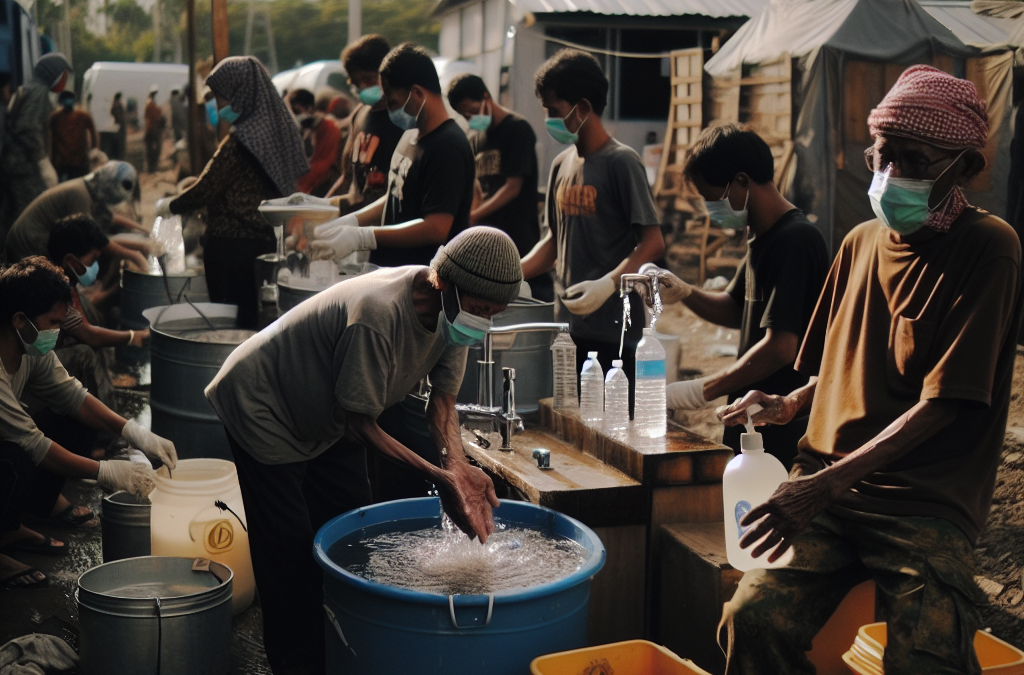Understanding the Importance of Hygiene
Why Hygiene Matters
In times of crisis, it can be so easy to let hygiene slide. I’ve been there, and trust me, maintaining hygiene is crucial. It not only helps prevent disease but also boosts morale. Think about a time when you felt clean and fresh amidst chaos. It’s that little bit of comfort that can make a huge difference.
When we’re faced with an emergency, like a natural disaster or a pandemic, germs and bacteria can spread like wildfire. Keeping up with hygiene practices helps us stay healthy, which is the last thing we want to compromise on. Remember that your health is one of the things you have control over when everything else seems out of whack.
Moreover, maintaining hygiene during extended emergencies instills a sense of normalcy. It brings back some of that peace of mind and structure that might otherwise be lost. I can’t tell you how uplifting washing my hands or taking a quick shower felt during stressful times.
Creating a Hygiene Plan
Assessing Your Resources
In my experience, the first step to creating a hygiene plan is to assess what resources you have. Don’t wait until you’re in a bind; evaluate your supplies now. You may think you have enough soap or sanitizers, but when push comes to shove, that might not be the case.
Take inventory of what you have and be creative. In emergencies, you sometimes have to improvise. I remember using vinegar as a natural disinfectant when I ran low on commercial products. It worked just fine and reminded me that there are always alternatives out there.
Finally, do what you can to gather essential items before they’re hard to find. Planning ahead strengthens your hygiene plan. Reassessing your situation regularly will also keep you on top of things, making it easier to adapt as the situation evolves.
Thank you for reading this post, don't forget to subscribe NOW for FREE!
Establishing Routine Hygiene Practices
Key Practices to Follow
One of the best pieces of advice I can give you is to establish a daily routine. You might have to push through the fear and uncertainty, but setting aside time for hygiene will help keep those germs at bay. I love starting my day with a refreshing shower and brushing my teeth, and I try to stick to that schedule as much as possible, even when things get crazy.
Handwashing is a must! I can’t stress this enough. Once I made it a habit, I began to feel the difference. Wash your hands before eating, after using the bathroom, and whenever you touch something that could be dirty. It’s simple but it works, trust me.
And don’t forget about keeping your living spaces clean. Dusting and sanitizing surfaces can feel like a chore, but I’ve found that it’s a great way to blow off some steam while also maintaining a safe environment. Plus, your space feels so much more inviting when it’s fresh and organized!
Managing Waste Effectively
Understanding Waste Disposal
Let’s talk waste management. This is an area that can be overlooked but is super important. When we don’t manage waste appropriately, it can lead to sanitation issues and possible outbreaks of illness. I remember when we didn’t have power during an emergency, and trust me, waste can pile up quickly if you’re not careful.
Learn about proper waste disposal methods that fit your circumstance. If you can’t take trash out regularly, designate a specific area away from your living space for waste. Just keep it clean and manageable, and always remember to use gloves when handling waste. It’s a small step that keeps contamination to a minimum.
And let’s not forget composting! I’ve started to love composting as a routine in my household, even during emergencies. It reduces waste and provides nutrients to the plants around, creating a lovely symbiotic relationship. It feels good to know that I’m not only cleaning up but also helping the environment in the process.
Staying Informed and Adapting
Researching Best Practices
In our tech-driven world, it’s easier than ever to stay informed. I can spend a few minutes each day reading up on hygiene practices during emergencies. Knowing what’s effective helps me make better choices and also share valuable information with friends and family who might be struggling.
Keeping updated on new guidelines or recommendations is essential, as hygiene standards can change based on emerging threats. Resources like the CDC or local health department updates are great starting points to keep your practices aligned with current health advisories.
Finally, be adaptable. Emergencies can change quickly, and that may require a shift in your hygiene practices. I learned to stay flexible and adjust to new situations, and remember—just because something worked yesterday doesn’t mean it will work the same today. Embrace change as part of the journey.
FAQ
1. Why is it important to maintain hygiene during emergencies?
Maintaining hygiene during emergencies helps prevent the spread of diseases, boosts morale, and instills a sense of normalcy in chaotic situations.
2. What are some essential items for a hygiene kit?
Essential items include soap, hand sanitizer, disinfectant wipes, toothbrushes, toothpaste, toilet paper, and any personal hygiene products necessary for you and your family.
3. How can I establish a hygiene routine at home?
Set specific times throughout the day for washing hands, cleaning surfaces, and taking care of personal hygiene. Stick to these times to create a new routine that feels natural.
4. What should I do with waste during an extended emergency?
It’s crucial to designate waste disposal areas away from living spaces. Learn about proper disposal methods for various types of waste and always wear gloves when handling it.
5. How can I find reliable information on hygiene practices during emergencies?
Check resources like the CDC, WHO, or local health departments. These organizations update their recommendations based on current health threats and best practices.






